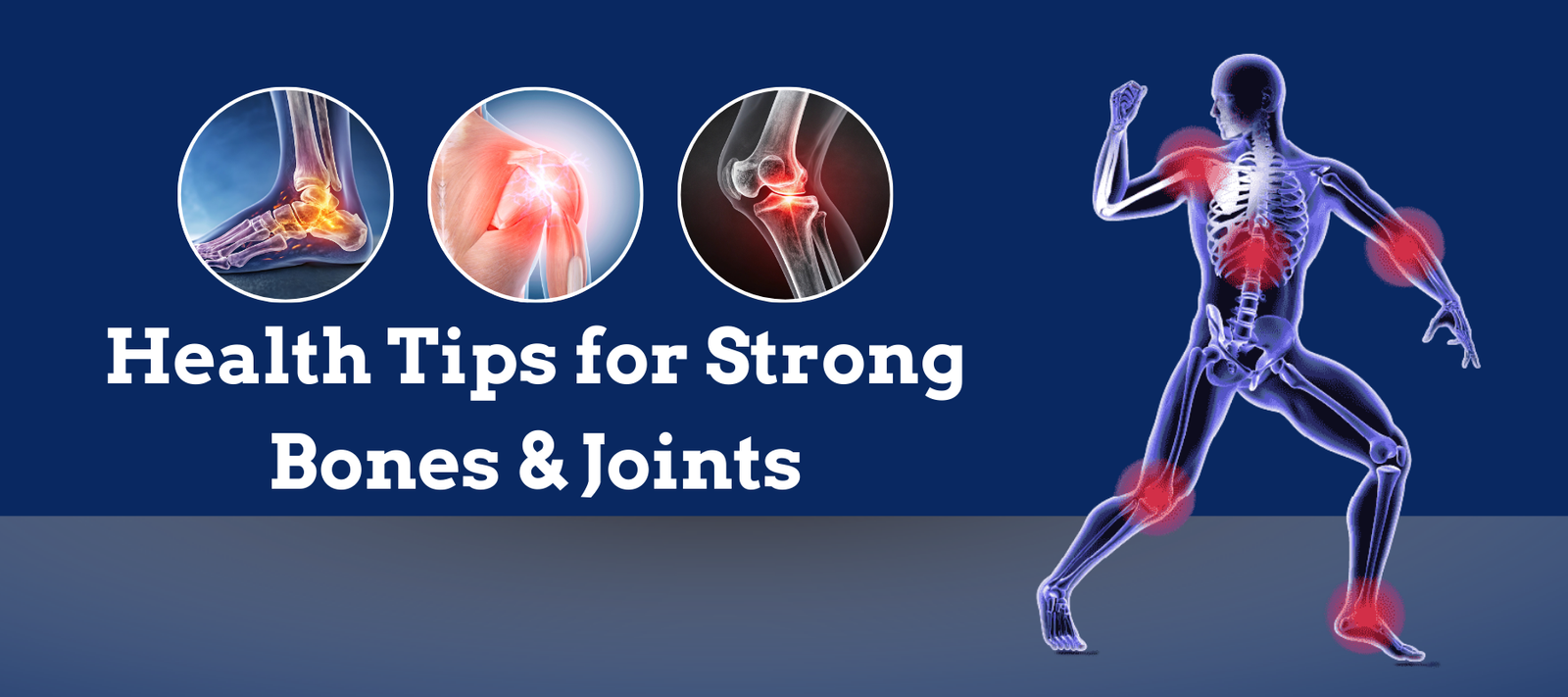Book Appointment
Appointment Confirmed!
Your appointment has been automatically confirmed and a confirmation email has been sent to your email address.
Your appointment has been automatically confirmed and a confirmation email has been sent to your email address.

Stay Active, Stay Healthy with Expert Orthopaedic Advice from Dr. Nishant Bhatia
Eat more calcium – Include milk, curd, paneer, cheese, and green leafy vegetables like spinach in your daily diet. Calcium is the main building block of bones and essential for strength. Aim for 1,000–1,200 mg per day.
Get daily sunlight – The morning sun is the best natural source of Vitamin D, which helps your body absorb calcium. Spend at least 15–20 minutes outdoors before 10 AM.
Stay physically active – Weight-bearing activities like walking, jogging, stair climbing, or dancing stimulate bone formation. Aim for at least 30 minutes a day.
Add protein to meals – Bones are made of a collagen framework, which comes from protein. Include eggs, pulses, chicken, fish, soy, and dairy to support bone repair and strength.
Avoid fizzy & sugary drinks – Soft drinks often contain phosphoric acid, which can interfere with calcium absorption. Choose water, fresh juices, or buttermilk instead.
Quit smoking – Smoking reduces blood supply to bones and slows healing after injuries or fractures. It also decreases bone density over time.
Limit alcohol consumption – Excessive alcohol weakens bones and increases the risk of falls and fractures. If you drink, keep it moderate.
Maintain a healthy weight – Extra body weight puts strain on knees, hips, and lower back joints. On the other hand, being underweight can increase the risk of osteoporosis.
Stretch daily – Gentle stretching keeps muscles flexible and joints mobile. Include stretches for your back, hips, and legs to prevent stiffness.
Stay hydrated – Water keeps the cartilage in your joints soft and reduces friction during movement. Aim for 2–3 liters daily.
Avoid unnecessary painkiller use – Overuse of certain medications can harm bone health and increase fracture risk. Always consult your doctor before long-term use.
Get regular bone health check-ups – Bone density scans are important, especially after age 40 for women and 50 for men, to detect osteoporosis early.
Include omega-3 fatty acids – Foods like salmon, tuna, flax seeds, and walnuts help reduce joint inflammation and stiffness.
Avoid long hours in high heels – Wearing high heels for extended periods can harm your knees, ankles, and spine alignment. Opt for comfortable shoes for daily use.
Practice good posture – Standing and sitting straight prevents back strain and keeps your spine healthy. Avoid slouching when using mobile phones or computers.
Prevent falls at home – Use anti-slip mats in bathrooms, keep floors clutter-free, and ensure proper lighting, especially for elderly family members.
Eat magnesium & zinc-rich foods – Nuts, seeds, whole grains, and legumes help in bone mineralization and repair.
Manage stress – High cortisol levels caused by stress can lead to bone loss over time. Practice deep breathing, yoga, or meditation daily.
Do strength training exercises – Weight training builds muscle strength, which supports and protects your bones and joints. Even light resistance training helps.
Listen to your body – Pain, swelling, or stiffness should never be ignored. Early diagnosis and treatment can prevent long-term joint damage.
Timings:
Monday – Saturday
6.30 PM – 8.30 PM
Timings:
Monday – Saturday
10.00 AM – 4.00 PM
© 2025 Dr. Nishant Bhatia | Powered by Digimarq Technology